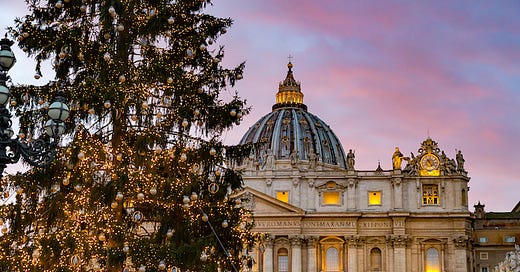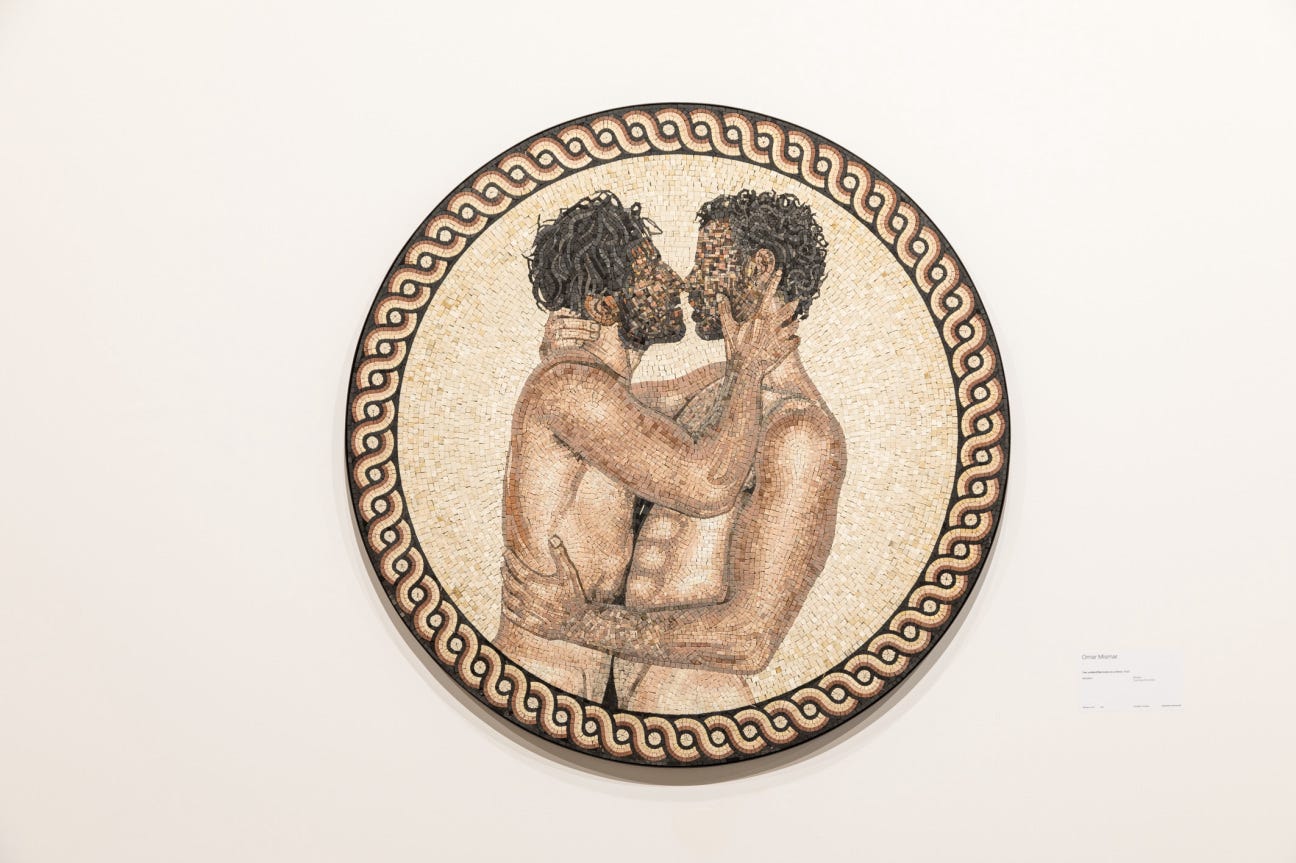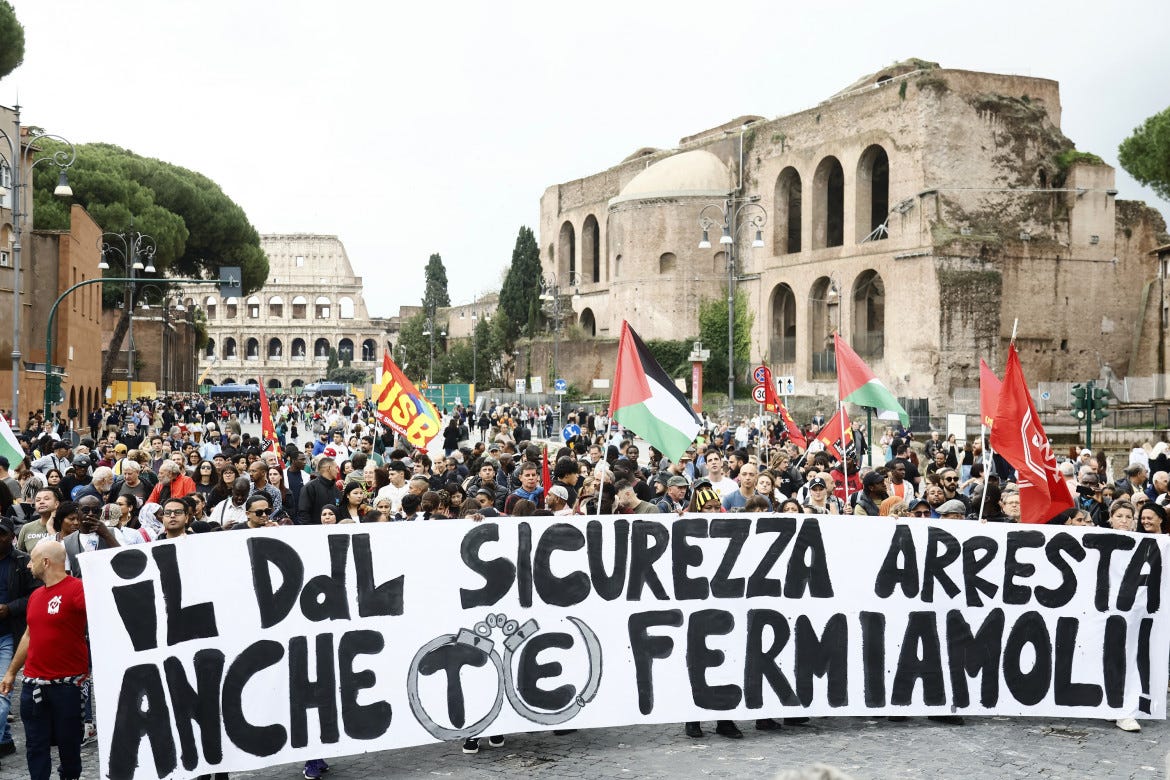Dear readers, and greetings from the Vatican where I’m about to file a short pre-Christmas report on the upcoming 2025 Jubilee before heading offline for a while. If you don’t know what all the fuss is about, well, the bottom line is this: every quarter of a century the Catholic Church dedicates a year to celebrating “God’s mercy.” This is a period when, to quote the official PR materials, “slaves and prisoners are to be freed, debts are to be forgiven and the light be let in.” Next week, on Christmas eve, the Pope will preside over the ‘rite of Opening of the Holy Door of St. Peter’s Basilica’ to inaugurate the festivities. This is a nice sentiment, for sure! But one does have to wonder, among other things, why God is so stingy with his mercy that he limits its distribution to 25-year increments (I think I’ll leave that one to the theologians… ;))
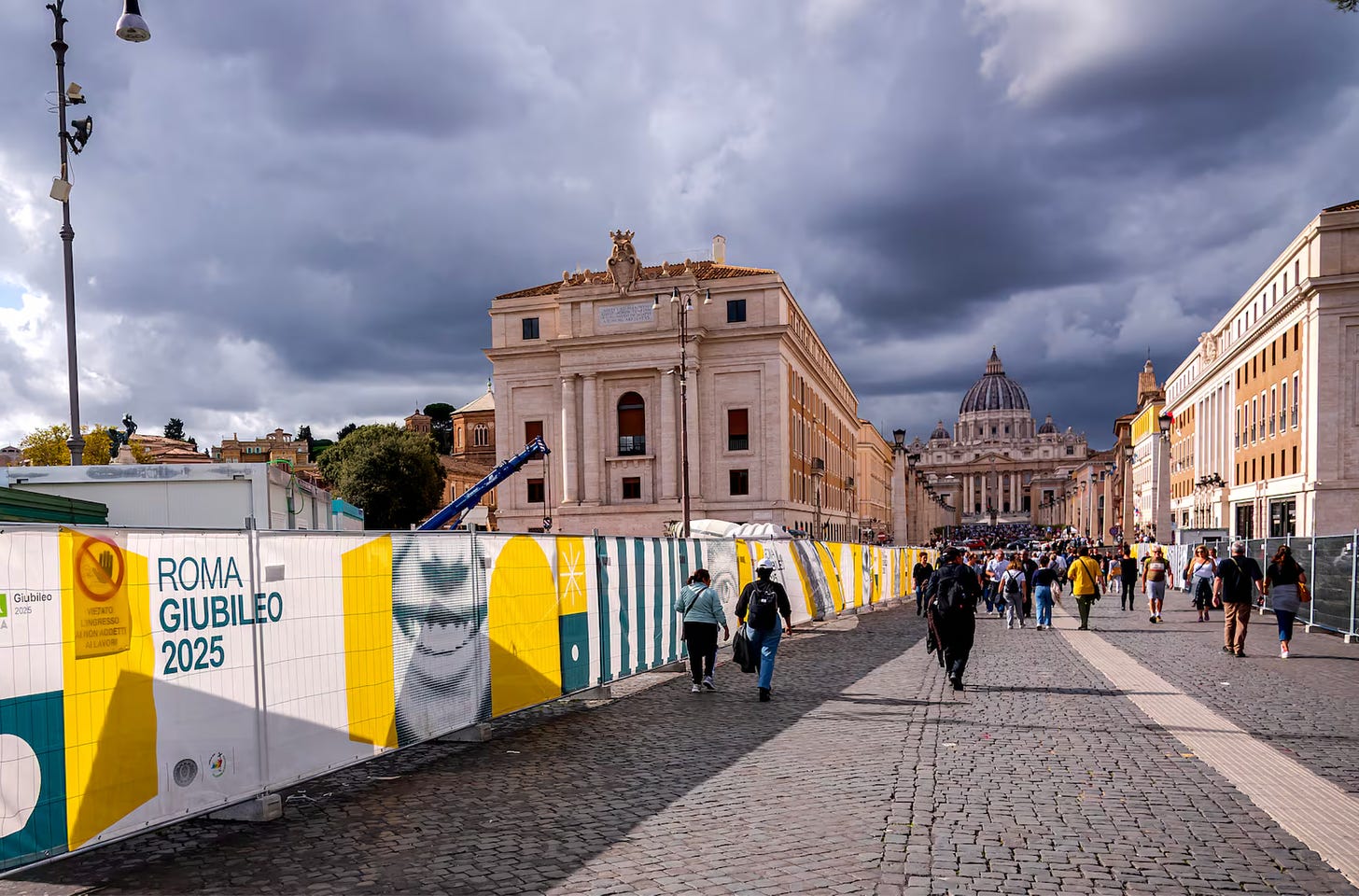
I may not be a practicing Christian myself, but I do understand why so many are craving a bit of divine mercy right now. With hundreds of thousands killed and displaced by war and poverty this year, with debt collectors of all kinds still savaging millions, humanity certainly needs a sense of hope, security, and direction. Granted, as a hypercapitalist money laundering outfit — which is funding its festival with 5 billion euros of tax payer money —I’d hazard the church might not be the best placed to serve as an ethical compass, but (again) I’ll save that for the op-ed. Political misgivings aside, I personally feel fortunate just to be here in Rome this warm winter eve, ending the year in a city that, in spite of corruption and infrastructure woes, is still one of the most beautiful places in the world.
2024 has been a strange one for Italy. After two years of political stagnation, in which Meloni has enjoyed virtually unchallenged hegemony, the country is tentatively beginning to turn against her. The maggioranza is openly bickering about the budget, migration policy, citizenship reform and the public service broadcaster RAI to name just a few of the hot topics. In fact, it’s gotten so bad that government ministers actually refused en masse to turn up to parliament this week. And yet… the opposition remains in disarray. While the PD is slowly regaining some momentum, M5S has repeatedly proved itself a liability. Last week, just days after the conclusion of the party’s Constituent Assembly, leader Giuseppe Conte spoke at a far-right gathering, trivializing anti-fascism, promising to be 'tough on migration’, and generally signposting that he’d be ready to make a deal with Meloni if the occasion were to arise. So much, then, for M5S’s much lauded “progressive” turn…
Culturally, things are looking a little brighter. I really enjoyed this year’s Venice Biennale which offered a thought-provoking journey through migrant and queer experiences from around the world. The impressionist exhibits at Milan’s Palazzo Reale were a joy to behold, and Anselm Kiefer’s show at the Palazzo Strozzi in Florence was truly remarkable. Books-wise I’ve enjoyed reading Claudia Durastanti’s Missitalia and Dario Voltolini’s Invernale, and it was good to see Dino Buzzati’s The Singularity released in ENG translation too. Frankly, Italian cinema been a little disappointing this year but Maura Delpero’s ‘Vermiglio’ and Andrea Segre’s ‘Berlinguer: La grande ambizione’ are both worth a watch if you haven’t seen them yet. Musically, on the other hand, 2024 marked a confident return of ‘Italian indie’ and new albums and EPs by Laila al Habash, ANNA and Post Nebbia, among others, kept me going with a spring in my step despite all the gloomy news.
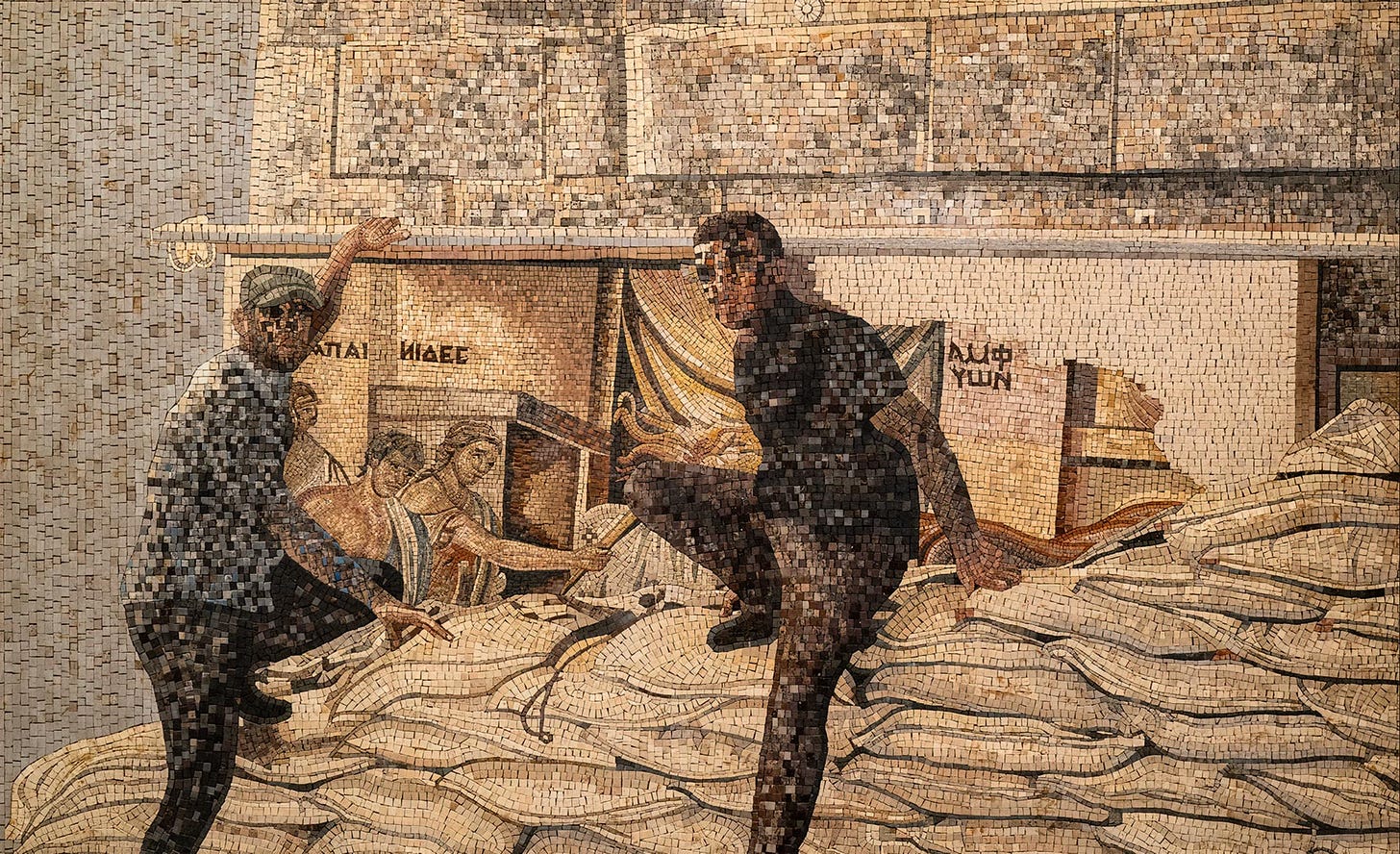
Still, I’d be lying if I said I wasn’t feeling a little nervous for Italy as we move into 2025. With Trump about to take office, and France and Germany in political freefall, Meloni will now have to step up as a European and global leader. In January, the PM will likely play a central role in the diplomatic endgame of the current phase of the Ukraine war, which will, inevitably, have consequences across the continent and around the world. At the same time, she’ll have to negotiate exemptions on trade tariffs that could otherwise savage the Italian economy. This would be a lot to manage for any leader, but with social unrest growing domestically Meloni’s task looks near-impossible. Strikes and protests are proliferating across the Italian peninsula in response to workplace deaths, environmental disasters and sleaze-related scandals. Instead of confronting these concerns, the government is instead forcing through a new draconian security bill, limiting the right to dissent, which, I’m sure, will only fan the flames of discontent. Whatever happens next, things are going to get heated.
But enough of that now. It’s (definitely) time for a rest! Thank you all, as ever, for reading, supporting and helping spread the word about The Week in Italy. You’re the best <3 I’ll be back on January 9th with a preview of the year ahead in politics, art and culture but until then buon natale e buone feste a tutt* ! Jamie.
I’m Jamie Mackay, a UK-born, Italy-based writer, working at the interfaces of journalism, criticism, poetry, fiction, philosophy, travelogue and cultural-history. I set up ‘The Week in Italy’ to share a regular overview of the debates and dilemmas, innovations and crises that sometimes pass under the radar of our overcrowded news feeds, to explore politics, current affairs, books, arts and food. If you’re a regular reader, and you enjoy these updates, I hope you’ll consider becoming a supporter for EUR 5.00 per month. I like to think of it as a weekly catch-up chat over an espresso. Alternatively, if you’d like to send a one-off something, you can do so via PayPal using this link. Grazie!

